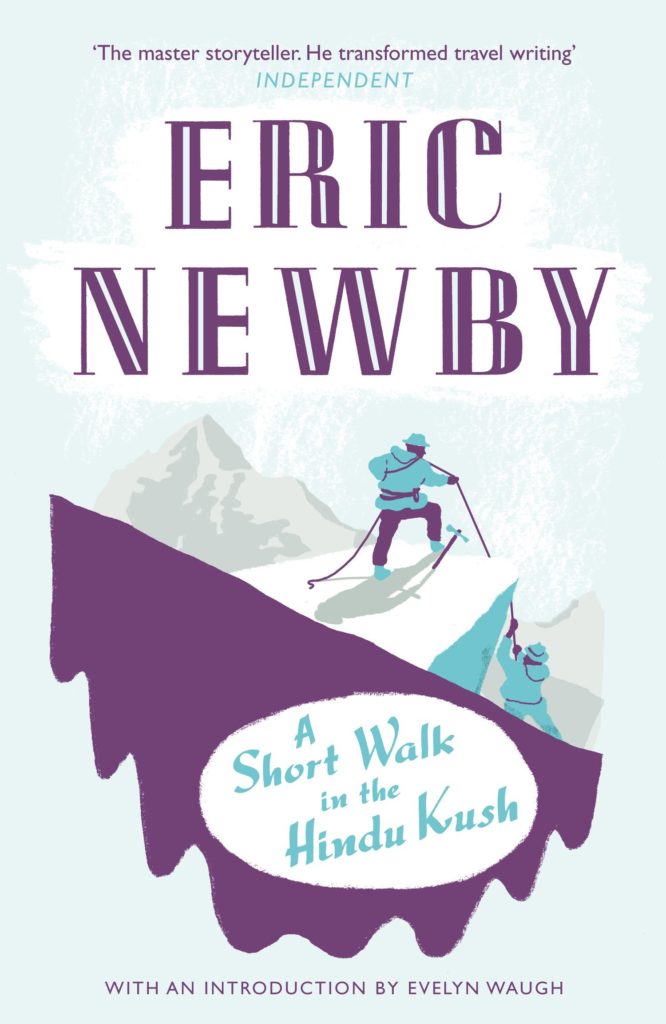
In 1956, a decorated British veteran of World War II named Eric Newby abruptly quit his job in a women’s clothing store to travel to, and attempt to climb, the mountains of Nuristan, Afghanistan, specifically the supposedly unscalable Mir Samir. He was joined by his friend Hugh Carless, who, like Newby, had served with distinction in the war, but unlike Newby had experience in the region, having done diplomatic work for the British government in Kabul and Tehran. Neither man, however, had any climbing experience whatsoever, making their ambitions potentially suicidally reckless and Newby’s title all the more droll: there is, after all, no such thing as a “short walk” in the Hindu Kush.
Fortunately for us, Newby and Carless survived their adventure, and A Short Walk In The Hindu Kush was the result: a charming, understated and self-deprecating (we might say quintessentially British) account of a remarkable journey. Originally published in 1956, the book was an instant success, but has enjoyed renewed popularity every time the world focused its attentions on Afghanistan, as in the wake of the Soviet invasion or the seemingly unending American war in Afghanistan. In part, that success is owing to the book’s conventional qualities as a travel narrative: an everyday person (of a sort) undertakes a daring journey to a strange and foreign land, and describes the people he meets and places he sees in exquisite detail. But part of the book’s enjoyment comes from having our expectations subverted, and witnessing our heroes continually stumble in pursuit of their goal. Before setting off on their journey, for example, they collectively decide that some preliminary training in the finer points of mountaineering might not be a bad idea, and so they leave London for North Wales – hardly a facsimile of the Hindu Kush – to learn from climbing enthusiasts and mountain rescue personnel, who congregate in the “Everest Room” of a local inn. “Everyone looks healthy here, except us,” one of them notes upon entering the room. They spend a few days learning the techniques of bouldering and rappelling, beginning with the easiest climbs, before they make the climactic ascent of a boulder. Their moment of triumph, however, is undercut somewhat by the discovery that they are not alone: “Sitting there on a boulder was a man in a bowler hat and white collar smoking a pipe.” Newby makes anticlimax his signature literary technique.
Much has been made about the peculiarly English character of this book, and indeed I found that part of its charm. Writing in the introduction, Evelyn Waugh said of this book that “it rejoices the heart of fellow Englishmen, and should at least illuminate those who have any curiosity about the odd character of our Kingdom.” Waugh seems to suggest that it is the wandering, restless spirit that is most emblematic:
For more than two hundred years now Englishmen have been wandering about the world for their amusement, suspect everywhere as government agents, to the great embarrassment of our officials. The Scotch endured great hardships in the cause of commerce; the French in the cause of either power or evangelism. The English only have half (and wholly) killed themselves in order to get away from England.
Reading Newby, I thought of Rory Stewart’s walk through Afghanistan in The Places In Between, but I was also reminded of a more recent read, Ben Macintyre’s Rogue Heroes, describing Newby’s generation of Englishmen, a breed I am sorry to think is long dead. They were united by their sense of adventure, their stoicism, their good humour in the face of grim odds, and the unshakeable confidence that no obstacle – whether a mountain range or a Nazi battalion – is so insurmountable that it will not yield to persistence and determination.